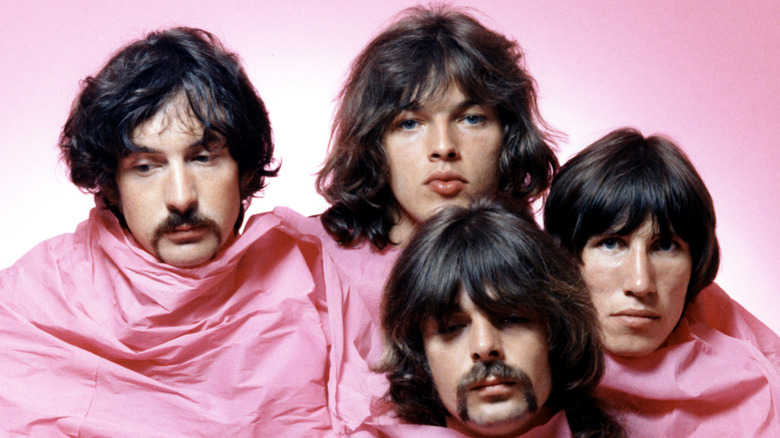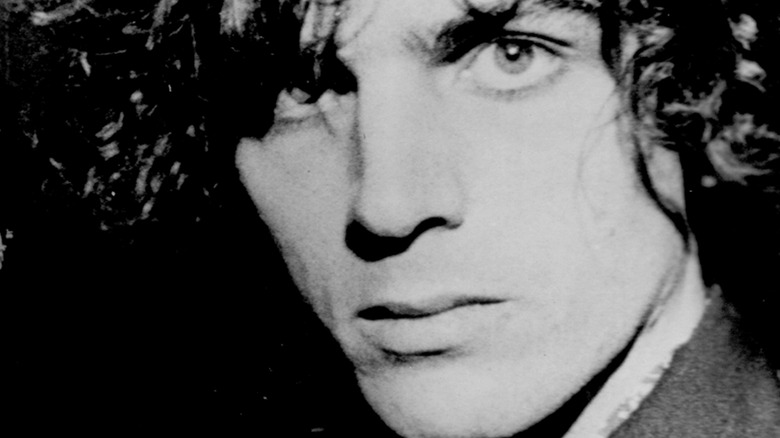The Truth About Pink Floyd's Song Arnold Layne
The 1960s, especially the mid to late part of the decade, were a very wild time. People wore outfits that were extravagant and colorful enough to be seen from space. Mind-altering drugs were in heavy rotation, and plenty of people believed in "Free Love" and "Give Peace a Chance." It was a time when these people clashed with the more straight-laced ones who had grown up in the 1950s and thought that these flower children were just a bit too wild.
As the free expression movement really took off, Pink Floyd formed in 1965, per Britannica. They unabashedly wore long or shaggy hair, and their music was accompanied by light shows that kept audiences in a trance as they played.
During that time, like other contemporaries such as the Beatles, they made many unusual songs. One of their most out-there tunes was "Arnold Layne," and it was based on a very real person that one of the band members observed while growing up.
Syd Barrett wrote about this person
Syd Barrett got the inspiration for the song while growing up. Apparently, there was a man who would run around the area and steal women's underwear off the clotheslines in people's yards. This inspired the song "Arnold Layne," per Song Facts. Roger Waters also lived in Barrett's neighborhood, and his mother also had her clothes stolen by "Arnold Layne." The band released it as a single and even made a music video to appear on "Top of the Pops," but since it dropped on the charts, that appearance was scrapped. Some U.K. radio stations refused to play it due to the content of the song.
"Arnold Layne" has never appeared on a true Pink Floyd album, but has been included on several compilations, including "Relics," "Works," and "Echoes," per AllMusic. It marks a time when Barrett was a member of the band before he reportedly started to deteriorate due to heavy drug use. The band would play the video before concerts in later years.
One wonders if this "Arnold Layne" fellow ever heard the song and recognized himself — even singing along with it. Apparently, he was never found, according to Roger Waters, via PowerPop Blog. The song remains an unusual part of music history.

